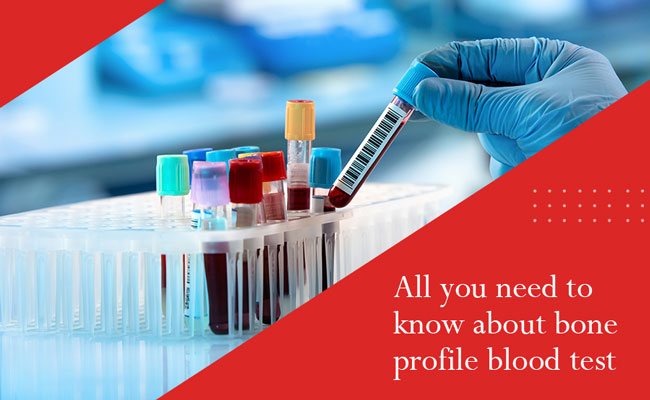A bone profile blood test will definitely sound like such a strange term, especially if you have not heard about it before. Do not worry because it is not such a complex medical term meant to get you all confused. Instead, it is related to the properties found in your bones, and it is essential that you know about it. This, of course, brings us back to the question, what is a bone profile blood test? Why would you need one?
All You Need To Know About A Bone Profile Blood Test

Blood Tests And Bone Health
The blood is responsible for the transportation of oxygen, energy, vitamins, and electrolytes around the body by contacting all the organs and tissues in your body. This is why blood is essential and valuable to doctors and healthcare professionals. For this reason, it is no surprise that the blood can be tested to see the state of your bone health. We all know that the skeleton provides support to our body, and for this reason, it has to be in good shape. A blood test can be used to analyze the bones and make sure that the skeleton is in good shape or not.
Bone Profile Blood Test
The bone profile blood test measures and analyses the enzymes, proteins, and minerals present in your bones. It is a critical test for monitoring the health of your bones and ensuring that they are developing and repairing themselves properly.
What Is A Bone Profile Test Used For?
Besides monitoring the health and state of your bones, a bone profile blood test is also used to analyze and monitor some particular health conditions, including the following;
- Bone cancer: This is a rare form of cancer, and it is characterized by bone pain, swelling, and lumps. This condition also leads to bones breaking much more easily than normal.
- Osteoporosis: This is a severe bone condition that makes the bone fragile, brittle, and easy to break. This can result from a reduction in bone density caused by heavy drinking, eating disorders, hormonal problems, or advancement in age.
- Thyroid problems or liver disease: A bone profile can also be used to diagnose problems with the thyroid gland and the parathyroid. These glands play an essential role in maintaining the balance of calcium levels and phosphorus. Through the help of the bone profile, any problems with the liver can be detected as well.
- Paget’s disease of bone: This is another common bone disease that affects bone turnover or renewal. Bone renewal or turnover is the way in which bone tissue replaces itself. If your doctor suspects that you might have this, you will also need a vitamin D test.
What Does The Bone Profile Test For? And What Are The Normal Test Results?
Just like the bone profile blood test can be used to monitor diseases relating to the bones, it can also monitor diseases that are not directly related to the bones. Nonetheless, it might be interesting to know the precise minerals that are tested for in the bone. There are four main minerals that the blood profile measures and they include the following;
- Albumin: This is a protein that is created in the liver. When the levels of this protein are low, it can be associated with lower bone density. So generally, the bone profile test can be used to identify osteoporosis, which is the loss of bone density. The normal range for this protein is 35 -50 g/L.
- Phosphate: Phosphates are chemicals that contain phosphorus. Phosphorus is a mineral that is important for bone growth. The normal range for phosphate should be between 0.74 – 1.4 mmol/L.
- Alkaline phosphatase (ALP): This is an enzyme found in liver cells and bones. It is used to detect bone disorders or liver diseases, and the reference range for the enzyme is 30 – 130u/L in adults.
- Calcium: This is one of the essential minerals measured by the bone profile test. It is one of the essential minerals that aid your bone health, and the bone profile blood test’s normal range for calcium is 2.2 – 2.6 mmol/L.
What You Need To Know About Taking The Test
During a blood test, a sample of your blood will have to be taken. The blood sample will be put in a vial and sent off to the lab for analysis. From there, it can take a minimum of 4 – 72 hours before the results will be ready.
Also, you will not have to fast before the bone profile blood test. Basically, you do not have to make any lifestyle changes before the test. However, if you are taking calcium supplements, you would have to put them away before the test as they may affect the outcome of your results.
Getting a bone profile blood test is a great way to get a clear picture of your bone health. On that note, get in touch with us at Private Blood Tests London for a blood test bone profile. Give us a call or send us an email to book an appointment.